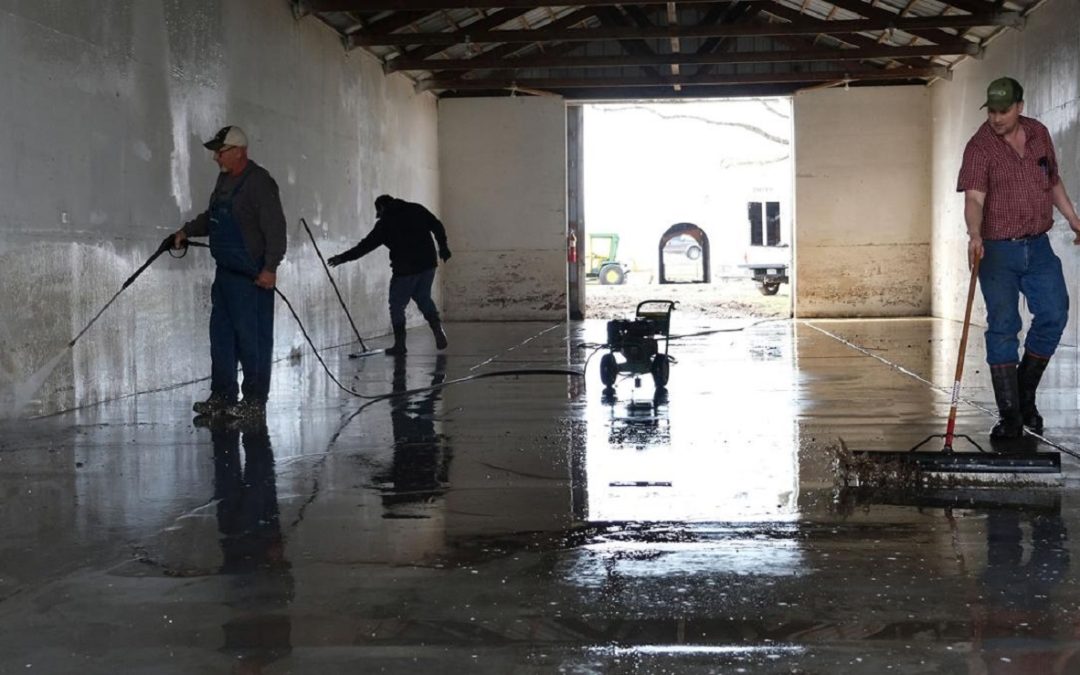When to Call the Professional Sewage Cleanup Experts
Dealing with sewage backups or spills is a situation that no homeowner wants to encounter. Unfortunately, these incidents can occur unexpectedly, posing significant health risks and causing extensive property damage. When faced with a sewage-related emergency, homeowners are often confronted with the decision of whether to attempt cleanup themselves or seek professional assistance. In this detailed blog, we will explore the intricacies of DIY vs. professional sewage cleanup, examining the factors to consider, the risks involved, and when it’s best to call in the experts.
Understanding the Risks Associated with Sewage Cleanup
Sewage backup or spills present a host of health hazards due to the presence of harmful pathogens, bacteria, viruses, and other contaminants. Exposure to sewage can lead to a range of illnesses and infections, including gastrointestinal issues, respiratory problems, and skin infections. DIY cleanup efforts without proper protective gear and sanitation protocols can expose individuals to these hazardous substances, posing serious health risks. Therefore, understanding the potential dangers of sewage exposure is crucial when evaluating the appropriate approach to cleanup.
Assessing the Severity of the Situation
The severity of the sewage backup or spill is a critical factor in determining the best course of action. Minor incidents, such as a small toilet overflow or localized plumbing issue, may be manageable through DIY cleanup efforts, especially if the contamination is limited and contained. However, large-scale sewage backups, extensive flooding, or contamination affecting multiple rooms or levels of the property typically require professional intervention. Assessing the extent of the damage, including the volume of sewage, the affected areas, and potential structural issues, is essential for making an informed decision.
Expertise and Equipment
Professional sewage cleanup companies possess the expertise, experience, and specialized equipment necessary to handle sewage-related emergencies effectively. Trained technicians undergo rigorous training in sewage cleanup protocols, biohazard handling, and safety procedures. They have access to advanced tools and equipment, including industrial-grade pumps, extraction machines, disinfectants, and personal protective gear, to remove sewage, sanitize affected areas, and restore the property to a safe and sanitary condition. The expertise and resources available to professional cleanup teams significantly enhance the efficiency and effectiveness of the cleanup process.
Health and Safety Considerations
Protecting the health and safety of occupants should always be the top priority when dealing with sewage cleanup. DIY cleanup attempts may lack the necessary safety protocols, equipment, and expertise, increasing the risk of exposure to hazardous contaminants. Professional sewage cleanup teams adhere to stringent safety guidelines and industry standards to minimize health risks and prevent cross-contamination. They employ personal protective equipment (PPE), implement biohazard containment measures, and utilize proper disposal methods to ensure safe and thorough cleanup while mitigating health hazards.
Preventing Further Damage
Prompt and effective sewage cleanup is essential for preventing further damage to the property and mitigating long-term consequences. Sewage contains corrosive elements that can damage building materials, furniture, and personal belongings if left untreated. DIY cleanup efforts may overlook hidden moisture pockets, leading to mold growth, structural deterioration, and persistent odor issues. Professional sewage cleanup services employ comprehensive mitigation strategies to remove sewage, dry affected areas, and prevent secondary damage, safeguarding the property’s integrity and occupants’ well-being.
Insurance Considerations and Documentation
In many cases, homeowner’s insurance policies cover sewage cleanup and restoration expenses, depending on the cause of the sewage backup and the extent of the damage. Professional sewage cleanup companies can assist homeowners in navigating the insurance claims process, documenting the damage, and maximizing coverage benefits. They work closely with insurance adjusters to ensure accurate assessments and fair compensation for restoration services. Proper documentation of the cleanup process, including photographs, videos, and detailed reports, is essential for insurance claims and ensuring that homeowners receive adequate coverage for the damages incurred.
Long-Term Considerations and Restoration
In addition to immediate cleanup efforts, homeowners must consider long-term restoration and mitigation strategies to restore their property to its pre-loss condition. Professional sewage cleanup companies offer comprehensive restoration services, including structural repairs, odor removal, mold remediation, and content restoration. These services address the underlying causes of the sewage backup, repair damaged infrastructure, and restore the property to a safe and habitable condition. Implementing preventive measures, such as installing backflow preventers, upgrading plumbing systems, and conducting regular inspections, can help minimize the risk of future sewage-related incidents.
DIY Cleanup Tips and Safety Precautions
For minor sewage spills or localized incidents, homeowners may opt to undertake DIY cleanup efforts under certain circumstances. However, it is essential to prioritize safety and follow recommended guidelines to minimize health risks and prevent further damage. Some DIY cleanup tips and safety precautions include:
When to Call the Experts
- Large-scale sewage backups or extensive flooding affecting multiple rooms or levels of the property.
- Contamination with hazardous substances, including sewage containing chemicals, toxins, or industrial waste.
- Structural damage, compromised building materials, or electrical hazards posing safety risks to occupants.
- Concerns regarding health hazards, such as mold growth, bacterial contamination, or airborne pathogens.
- Inadequate experience, expertise, or resources to handle the cleanup effectively and safely.
In summary, the decision between DIY and professional sewage cleanup depends on various factors, including the severity of the damage, health and safety considerations, expertise and equipment requirements, insurance coverage, and long-term restoration needs. While DIY cleanup may be suitable for minor incidents, large-scale sewage backups or extensive contamination typically require professional intervention to ensure thorough cleanup, mitigate health risks, and prevent further damage. By prioritizing safety, following recommended guidelines, and making informed decisions, homeowners can effectively address sewage-related emergencies and restore their properties to a safe and habitable condition.

